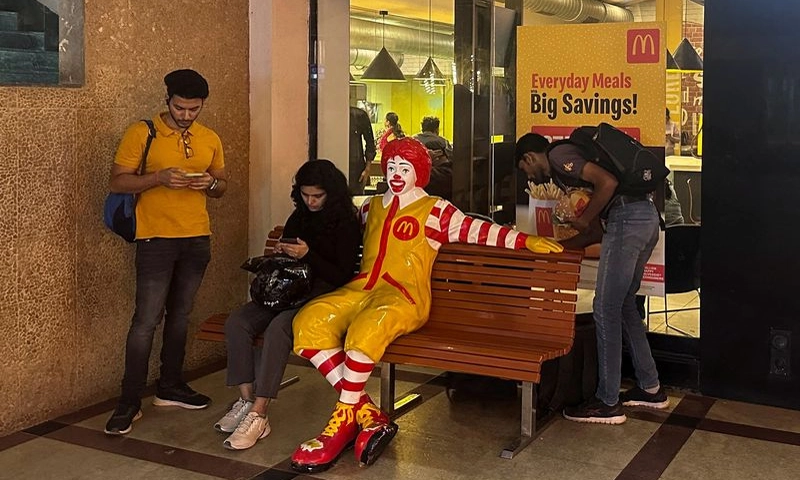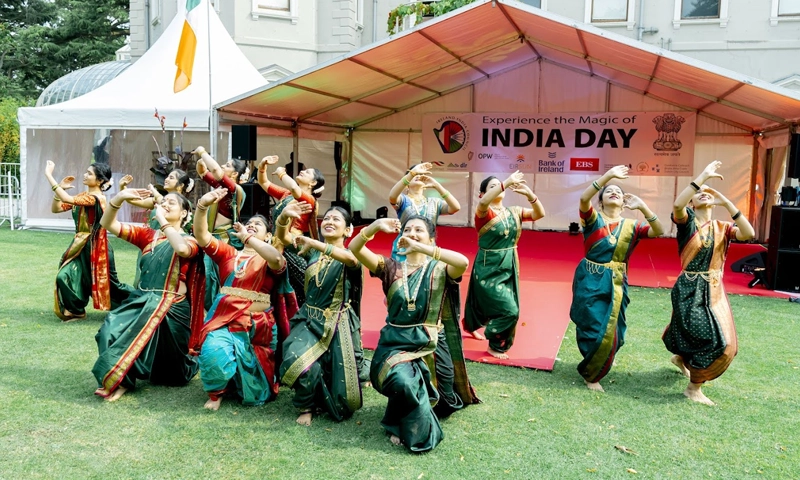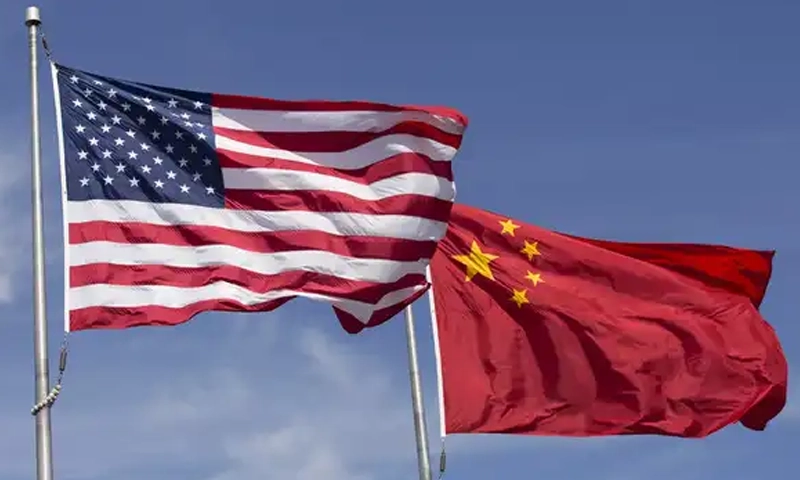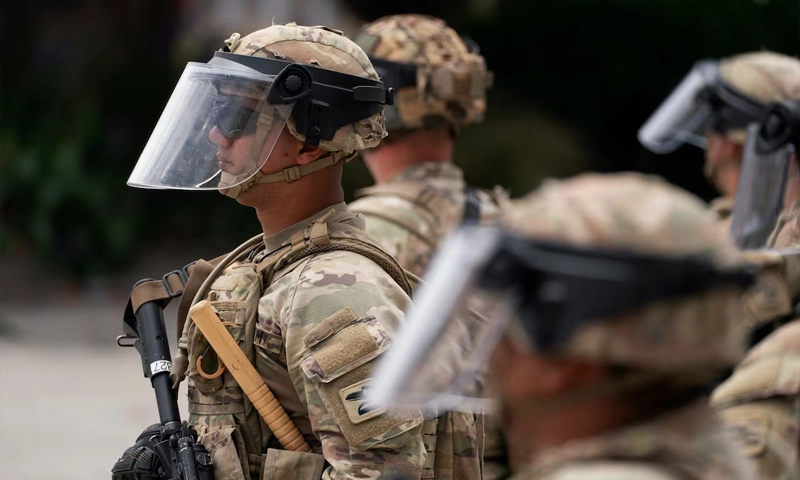- AFP
- 3 Hours ago

India eyes US trade talks, but Modi supporters want ‘boycott US’

NEW DELHI/MUMBAI: From McDonald’s and Coca-Cola to Amazon and Apple, US-based multinationals are facing calls for a boycott in India as business executives and Prime Minister Narendra Modi’s supporters stoke anti-American sentiment to protest against US tariffs, Reuters reported.
But a separate Reuters report says India hopes trade talks with the US will continue even as President Donald Trump hiked tariffs on its exports to 50 per cent due to New Delhi’s purchase of sanctioned Russian oil.
The news agency quoted two lawmakers as saying on Monday, citing a briefing to a parliamentary panel on foreign affairs.
WEAPONISING HINDU NATIONALISM
With the Hindu nationalists associated with the ruling BJP are banking on anti-Americanism, the two conflicting pictures appear at a time when Congress leader Rahul Gandhi is pushing ahead with his voter fraud claim with evidence.
Read more: Rahul Gandhi says ‘fake voters’ created to propel BJP to victory
Hence, the timing of invoking “external enemy theory” is very interesting given that Pakistan too humiliated Prime Minister Narendra Modi in the May 7-10 war followed by isolation at the world stage.
In shortage, it is an unending series of defeats which a strongman like Modi can’t afford given that he has been using hollow claims to project himself as a maker of “Shinning India”.
Read more: India painting itself as global leader, but has nothing to show: FM Asim Munir
NO! NOT ANOTHER CHINA
But New Delhi can’t afford losing the huge US market. Therefore, it is still hoping that Trump would give relief, especially when he meeting his Russian counterpart Vladimir Putin in Alaska on Friday.
Any progress in ending the Ukraine war may lead to Trump softening his stance on the Russian oil issue. However, it doesn’t seem likely that he would allow India become a manufacturing hub — another China.
Why? After all Trump’s entire tariff policy is aimed at “Make America Great Again” by bringing manufacturing back to the US.
It also explains why Trump thinks that India is a “dead economy“.
So, India somehow doesn’t fully fit into the Trump-led world order. Not at least as replacement to China.
Meanwhile, India also witnessed a boycott Turkiye movement after Ankara openly supported Islamabad in the Pakistan-India war.
A 87 BILLION DOLLAR QUESTION
Goods trade between the United States and India – the world’s biggest and fifth-largest economies, respectively – was worth about $87 billion in the last fiscal year, according to Indian government estimates. These figures explain the desperation.
“Our relations with the US are multi-dimensional, and should not be seen only through the prism of trade,” one of the lawmakers said, citing the foreign secretary’s briefing to the panel.
Shashi Tharoor, an opposition Congress party leader, who heads the panel, said trade talks would continue.
“As of now, there is no change in the existing plans for the sixth round,” he said, referring to a scheduled visit of a US trade delegation to New Delhi from August 25.
AFFLUENT INDIANS, AMERICAN GOODS AND BOYCOTT
Reuters mentions its report that India, the world’s most populous nation, is a key market for American brands that have rapidly expanded to target a growing base of affluent consumers, many of whom remain infatuated with international labels seen as symbols of moving up in life.
India, for example, is the biggest market by users for Meta’s WhatsApp and Domino’s has more restaurants than any other brand in the country. Beverages like Pepsi and Coca-Cola often dominate store shelves, and people still queue up when a new Apple store opens or a Starbucks cafe doles out discounts.
Although there was no immediate indication of sales being hit, there’s a growing chorus both on social media and offline to buy local and ditch American products after Trump imposed a 50 per cent tariff on goods from India, rattling exporters and damaging ties between New Delhi and Washington.
FOLLOW CHINA AND SOUTH KOREA
Manish Chowdhary, co-founder of India’s Wow Skin Science, took to LinkedIn with a video message urging support for farmers and startups to make “Made in India” a “global obsession,” and to learn from South Korea whose food and beauty products are famous worldwide.
“We have lined up for products from thousands of miles away. We have proudly spent on brands that we don’t own, while our own makers fight for attention in their own country,” he said.
Rahm Shastry, CEO of India’s DriveU, which provides a car driver on call service, wrote on LinkedIn: “India should have its own home-grown Twitter/Google/YouTube/WhatsApp/FB — like China has.”
To be fair, Indian retail companies give foreign brands like Starbucks stiff competition in the domestic market, but going global has been a challenge.
THE IT EXCEPTION
Indian IT services firms, however, have become deeply entrenched in the global economy, with the likes of TCS and Infosys providing software solutions to clients world over.
On Sunday, Modi made a “special appeal” for becoming self-reliant, telling a gathering in Bengaluru that Indian technology companies made products for the world but “now is the time for us to give more priority to India’s needs.”
He did not name any company.
BUY INDIAN PRODUCTS
The Swadeshi Jagran Manch group, which is linked to Modi’s BJP, took out small public rallies across India on Sunday, urging people to boycott American brands.
“People are now looking at Indian products. It will take some time to fructify,” Ashwani Mahajan, the group’s co-convenor, told Reuters. “This is a call for nationalism, patriotism.”
He also shared with Reuters a table his group is circulating on WhatsApp, listing Indian brands of bath soaps, toothpaste and cold drinks that people could choose over foreign ones.
On social media, one of the group’s campaigns is a graphic titled “Boycott foreign food chains”, with logos of McDonald’s and many other restaurant brands.
In Uttar Pradesh, Rajat Gupta, 37, who was dining at a McDonald’s in Lucknow on Monday, said he wasn’t concerned about the tariff protests and simply enjoyed the 49-rupee ($0.55) coffee he considered good value for money.
“Tariffs are a matter of diplomacy and my McPuff, coffee should not be dragged into it,” he said.






